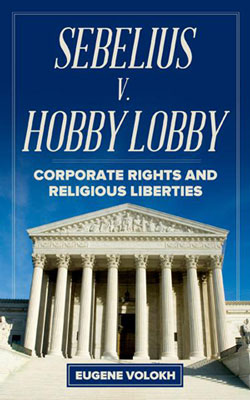United States Supreme Court Rules on Two Cases This Year That Could Impact Students
 The United States Supreme Court recently ruled on two search and seizure cases that involved searching an individual to avoid evidence destruction and house searches that could affect college students.
The United States Supreme Court recently ruled on two search and seizure cases that involved searching an individual to avoid evidence destruction and house searches that could affect college students.
In California, there was a recent case about a robbery that turned violent. Abel Lopez was attacked and robbed near an alleyway. The cops were called and the victim identified the attacker as Walter Fernandez.
They reached the door of where bystanders saw the robber run to and Walter Fernandez answered the door refusing to let the police in. He was arrested and taken in for questioning. The police came back and preceded to search the residency because of Roxanne Rojas, the co-tenant of the home allowed the search through both written and verbal consent Even though Walter did not approve, he was then detained and police were permitted to search the apartment, which revealed a plethora of gang weaponry.
The Court ruled that the search was reasonable and sided with California, according to the decision.
Professor Gregory Bordelon, lecturer of political science said regarding Fernandez vs. California, “What I think is most alarming about these particular facts in the context of how the Supreme Court fleshed out a rule of law on co-tenant consent and shared dominion over property is the nature of how the police in this case could have gained probable cause and possibly also gotten a warrant instead of the courts having to decide what would become ultimately a new rule of law, excepting the rule in Georgia v. Randolph (where simultaneous objection by one co-tenant trumps the consent presumably given by the other co-tenant).”
He continued, “It seems in the Fernandez case that the police could have temporarily detained the objecting party on valid grounds and gotten the warrant in a rather quick fashion thus removing the need for this case to go to the Supreme Court.”
In Missouri vs. McNeely, a DUI was given to a man whose blood alcohol concentration was clearly above the legal limit in Missouri, but the way that was found out was not by his consent.
McNeely had cross the center median of the road and was speeding, which led a cop to pull him over. The cop proceeded to attempt to give him a Breathalyzer test and he refused. The cop then arrested McNeely and took him to a nearby hospital for a blood test that revealed his blood alcohal content (BAC) level.
The Supreme Court ruled that it violated his Fourth Amendment right because they extracted it without a warrant and his BAC was quickly decelerating.
“Criminal procedure is such a fact intensive area of the law that it’s hard to say whether one scenario was right or wrong in a general sense,” according to Bordelon.
Bordelon continued, “In the McNeely case, the issue was really whether the dissipation of alcohol in the blood stream constituted an exigent circumstance so much to the extent that a warrant shouldn’t be needed.”
Chief of University Police, William McElrath said the topic of personal feredom and public safety is a heavily debated topic.
“Many people believe that personal freedoms may be overlooked when a life is at stake. To a certain extent, the law also supports this concept. There are exceptions to the need to get a search warrant when the police want to conduct a search. One of them is called the ‘exigent circumstances’ exception. This allows the police to conduct a search when emergency circumstances do not allow the police the time to obtain a search warrant, and any delay may harm someone or could destroy evidence,” McElrath said.
He continued, “On a college campus, it could be information leading the police to believe that someone has drugs, liquor or evidence of a crime.”
Bordelon said, “The Court was mindful of the factual sensitivity of such cases in this decision and it ruled that it would not issue a blanket rule on exigency exceptions and such invasive procedures – had the facts been different, the analysis could have gone a different way.
“Justice Scalia, known for his pro-state conservative reasoning, has consistently sided with the liberal wing of the Court in these types of Fourth Amendment cases not on principled ideological terms but on his position on upholding precedent and that these types of cases do violate a person’s reasonable expectation of privacy,” said Bordelon.
McElrath said, “The laws concerning search and seizure are always being updated as technology changes. Most of our search and seizure laws were made long before IPhones, emails, and Facebook accounts. Judges and legislators are now trying to balance privacy concerns as they relate to Internet crimes and cyber bullying. We are in a period of time where law enforcement is playing catch up with crimes utilizing advanced technology.”
Joe Dellera, senior political science major said, “the most common mistake we make as citizens of this country is giving up rights without realizing it. The most important thing is to be educated on your rights, more common then not people who don’t know there rights are more likely to get victimized unknowingly because of how uninformed they are”.
IMAGE COMPILED by Christopher Orlando


